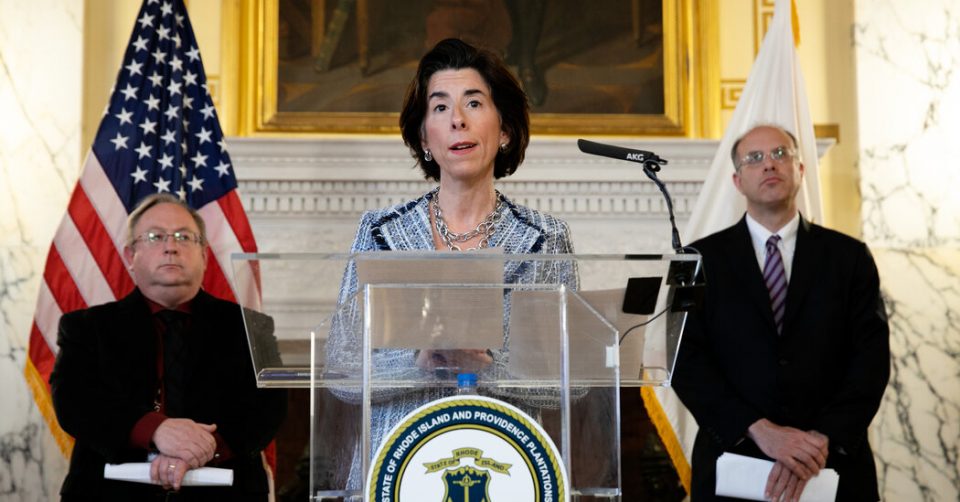
The Senate on Tuesday confirmed Gina Raimondo, the current governor of Rhode Island and former venture capitalist, as the next secretary of commerce. Her nomination was approved by a vote of 85 to 15.
A moderate Democrat with a background in the financial industry, Ms. Raimondo is expected to leverage her private and public sector experience to oversee a sprawling bureaucracy that is charged with both promoting and regulating American business.
Under Ms. Raimondo, the commerce department is likely to play a crucial role in several of Mr. Biden’s policy efforts, including spurring the American economy, building out rural broadband and other infrastructure, and leading America’s technology competition with China. The department also carries out the census, oversees American fisheries, weather monitoring, telecommunications standards and economic data gathering, among other activities.
Maria Cantwell, a Democratic senator from Washington, said she thought Ms. Raimondo’s private sector experience would help her in facilitating new investments and creating jobs, and that she was “counting on Governor Raimondo to help us with our export economy.”
Ms. Cantwell also said she believed Ms. Raimondo would be a departure from President Donald J. Trump’s commerce secretary, Wilbur Ross. “I think he and the President spent a lot more time shaking their fists at the world community than engaging them on policies that were really going to help markets and help us move forward with getting our products in the door.”
A graduate of Yale University and Oxford University, Ms. Raimondo was a founding employee at Village Ventures, an investment firm backed by Bain Capital. She also co-founded her own venture capital firm, Point Judith Capital, before being elected treasurer and then governor of Rhode Island.
The first female governor of the state, she was known for introducing a centrist agenda that included training programs, fewer regulations and reduced taxes for businesses. She also led a restructuring of the state’s pension programs, clashing with unions in the process.
Ms. Raimondo drew criticism from some Republicans in her nomination hearing in January, when she declined to commit to keeping certain restrictions in place on the exports that could be sent to Chinese telecom firm Huawei.
Under Mr. Trump, the Commerce Department played an outsized role in trade policy, levying tariffs on imported aluminum and steel for national security reasons, investigating additional tariffs on cars, and placing a variety of curbs on technology exports to China.
Ms. Raimondo and other Biden administration officials have not clarified whether they will keep or scrap those restrictions, saying they will first carry out a comprehensive review of their impact.


